Jordan and Developments in the Region
Ambassador Alia Hatoug-Bouran
Photos | Transcript
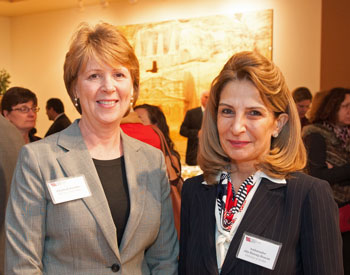 Washington, DC—On November 27, 2012, Jordanian Ambassador Alia Hatoug-Bouran joined New York Times Pentagon Correspondent Elisabeth Bumiller for a conversation on Jordan and developments in the region. Ambassador Hatoug-Bouran’s remarks covered the economic crisis and protests resulting from increased gas prices, Jordan’s response to the crisis, the impact of the refugee crisis on the Palestinian refugee population, and US-Jordanian relations. The event was hosted by the Embassy of Jordan.
Washington, DC—On November 27, 2012, Jordanian Ambassador Alia Hatoug-Bouran joined New York Times Pentagon Correspondent Elisabeth Bumiller for a conversation on Jordan and developments in the region. Ambassador Hatoug-Bouran’s remarks covered the economic crisis and protests resulting from increased gas prices, Jordan’s response to the crisis, the impact of the refugee crisis on the Palestinian refugee population, and US-Jordanian relations. The event was hosted by the Embassy of Jordan.
Bouran discussed the high price of gas in the country and accompanying protests. Jordan imports 96% of its oil and gas, so it is greatly affected by disruptions in the region. Most recently fuel imports from Egypt ceased and the gas pipeline in the Sinai—which Jordan shares with Israel—was targeted in 15 bombings. Bouran still expects protests in the coming months, but explained that tourism in Jordan has increased and that the country is looking forward to elections in January.
Jordan houses over 200,000 refugees from Syria—mostly in its Zaatari camp—in addition to 13 Palestinian camps and thousands of Iraqi refugees. Although Jordan welcomes Syrian refugees, there are serious concerns about Syrian chemical and biological weapons, spillover of violence, and being able to differentiate those coming over the borders as combatants or refugees. Jordan fears that weapons from rebels will fall into the hands of terrorist organizations like Hamas and Hezbollah. To help address some of these concerns, American military planners are advising the Jordanian military on how to prepare for any spillover of violence. Despite these struggles the ambassador does not believe that the border with Syria will be closed. In her words, “We share with the refugees what we have and we are thankful for the international community and the United States for their help.
On the Arab-Israeli conflict, Bouran stressed that Jordan is in a unique position to reach out to both sides. Highlighting that Jordan supports a two-state solution, the ambassador underlined the importance of resolving this conflict for peace in the region.
In terms of the economy, the Ambassador explained that Jordan places a high value on education; however, the government is not employing as many people as it used to, and the private sector is not growing quickly enough to fill the gap. To help meet this need, the government is working to attract international investment in Jordan and support entrepreneurship. She thanked international actors including the US for its helping in guaranteeing loans for SMEs, among many other things.
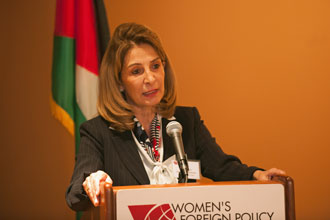 |
 |
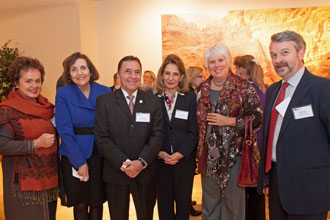 |
Ambassador Alia Hatoug-Bouran speaks to WFPG
|
|
Patricia Ellis with Ambassadors Claudia Fritsche
of Liechtenstein, Mario Jaramillo of Panama,
Alia Hatoug-Bouran, Marina Kaljurand of Estonia
and Joško Paro of Croatia
|
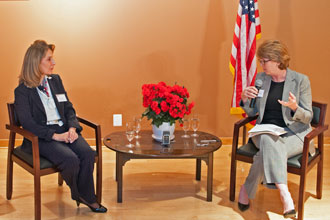 |
 |
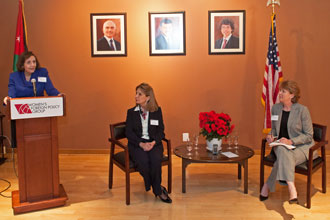 |
Moderator Elisabeth Bumiller during conversation
with Ambassador Hatoug-Bouran
|
|
WFPG President Patricia Ellis introduces the program
|
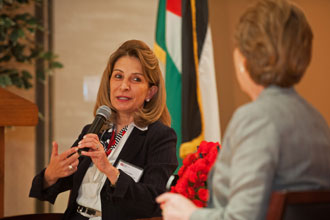 |
 |
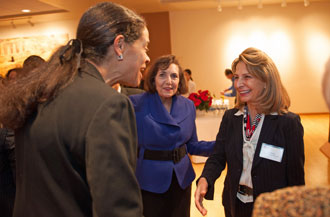 |
Ambassador Hatoug-Bouran responding to question
|
|
Ambassador Hatoug-Bouran greets WFPG Board
Member Gail Leftwich Kitch
|
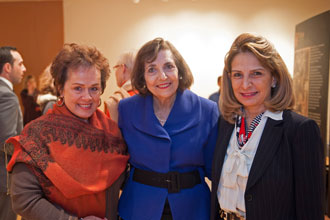 |
 |
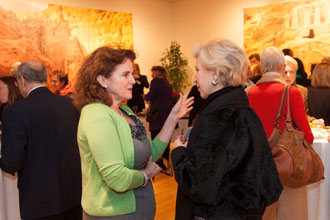 |
Ambassador Fritsche, Patricia Ellis, and
Ambassador Hatoug-Bouran
|
|
WFPG Board Member Donna Constantinople speaks with
a guest during the reception
|
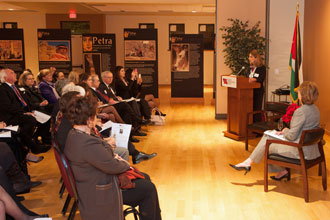 |
 |
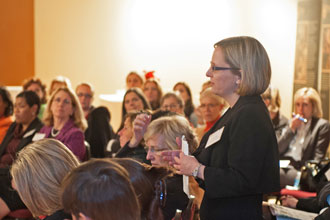 |
| |
|
|
| |
|
|